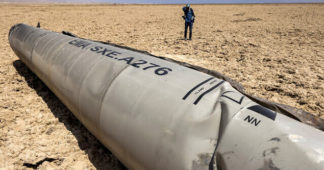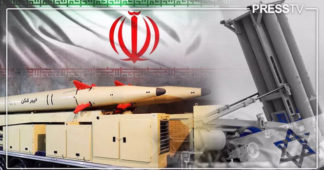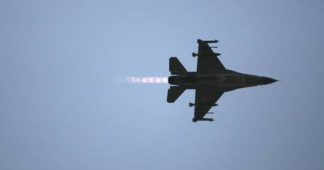by Paul Larudee
It is apparently not much of an exaggeration to say that Israel’s attack on Iran fizzled. Some targets were hit and at least two Iranian soldiers were killed, but the ineffectiveness of the operation was probably due to several factors:
- Israel just doesn’t have the weaponry. Most of its missiles don’t have the distance, and those that do, just barely so. That’s true for a lot of its drones, too, and they are too easily detected and don’t have the carrying power.
- The US didn’t aid, in particular with refueling manned aircraft. It’s just as well. It would have been a good way to lose both pilots and aircraft.
- Most of the nations geographically in between Israel and Iran would not permit overflights from either Israel or the US. Iran told these nations that they prefer to remain on good terms with them, and that they would consider it an act of war to lend their airspace to Israeli operations.
- Iranian antiaircraft systems were apparently quite effective.
Other factors may have been involved. It is possible that cooler heads prevailed in the Israeli and US militaries, for example, but we may never know, or at least not soon. Nevertheless, the main reason that Israel did not cause more damage appears not to be a question of intention, but of capability. There’s no question that Israel was hoping for an escalation that would widen the war and force the US to enter on Israel’s side. That appears to have been avoided. Iran will have to respond, but unlike Israel, neither Iran nor the US wants escalation. Iran’s response will therefore be measured, and they will declare the matter settled.
The Netanyahu government now finds itself squarely in check, though not yet checkmated. Nevertheless, the best it can do now is probably a stalemate. This is not good in the short run for Gaza and the Palestinians, nor for Lebanon, but it’s also not good for Israel, whose population is emigrating, whose economy is tanking, and which is generally a pariah throughout the world. Its decades of building its image as glamorous, progressive and a technological powerhouse is gone. It is now the redoubt of religious fanatics and criminals that even much of the international Jewish community is loathe to support. Its current mainstay is the international network of influence peddlers such as AIPAC, whose power has not dwindled in the US and other western governments, due to its ability to enrich the military industrial complex and to control the elective processes in these governments. With the loss of a wider base in the Jewish community, however, that power is likely to decline.
We remind our readers that publication of articles on our site does not mean that we agree with what is written. Our policy is to publish anything which we consider of interest, so as to assist our readers in forming their opinions. Sometimes we even publish articles with which we totally disagree, since we believe it is important for our readers to be informed on as wide a spectrum of views as possible.











